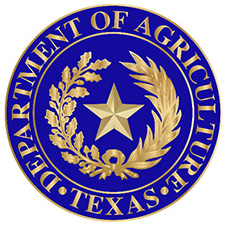High commodity prices lure double-crop farmers
Nearly three of every 10 farmers with experience growing wheat and soybeans in one season say they will sow more winter wheat this fall, said a Purdue University poll on Tuesday. The practice, known as double-cropping wheat and soybeans, would mean larger wheat production in the United States and would help buffer the disruption in world food supplies created by Russia’s invasion of Ukraine.
Don’t miss the Ag Insider briefing today!
Today at 1pm ET please join us TODAY for an exclusive, subscriber LIVE Ag Insider briefing featuring our amazing reporting team — moderated by Editor-in-chief Samuel Fromartz on Zoom. Q&A to follow. They’ll be discussing the key issues for anyone immersed in food and ag policy.
Cover crops struggle to overcome conventional soil management
Cover crops can help farmers build healthier soil, but they may not work well on fields where farmers have continuously grown corn for decades and applied large amounts of nitrogen fertilizers, according to two new studies.
Valadao leads Trump acolyte in California primary
With most of the votes still to be counted, California Rep. David Valadao, who voted to impeach President Trump in 2021, was 1,100 votes ahead of the former Fresno city councilman who vowed vengeance for the former president on Wednesday morning.
Jacobs-Young wins Senate approval as USDA chief scientist
The Senate confirmed Chavonda Jacobs-Young as USDA undersecretary for research on Tuesday, the first woman of color to hold the post. As undersecretary, Jacobs-Young — a supporter of genetic engineering — will also be USDA’s chief scientist.
TODAY’S QUICK HITS
Russia destroys commodities terminal: Ukrainian authorities said Russian shelling destroyed the second-largest grain terminal in the country, in Mykolaiv, near the Black Sea. An agricultural official said the Russian blockade would limit grain exports to no more than 2 million tonnes a month. (Reuters)
Twenty hunger hotspots: Two UN agencies listed 20 “hunger hotspots” that are expected to worsen this summer due to warfare, harsh weather and the pandemic, with the most dire conditions in Afghanistan, Somalia, Ethiopia, Nigeria, South Sudan and Yemen. (FAO)
Eating locally has limits: Most Americans believe that eating locally produced food is good for the environment but transportation accounts for as little as 5 percent of food’s carbon footprint; more important is the type of food being consumed. (Vox)
POET joins carbon pipeline: Ethanol maker POET signed a letter of intent to ship millions of tonnes of carbon dioxide annually through the proposed Navigator pipeline for injection underground in south-central Illinois from 18 of its plants in Iowa, Nebraska and South Dakota. (Cedar Rapids Gazette)











